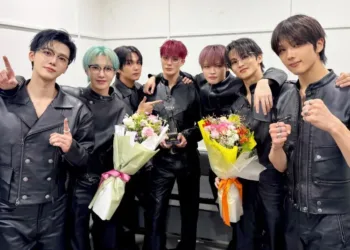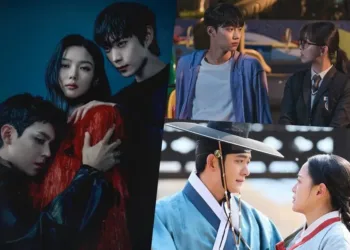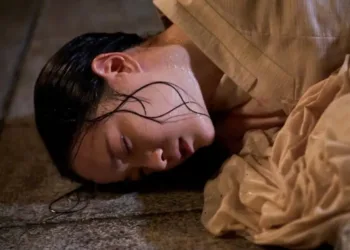Madison Beer just learned a hard lesson about pop music fandom: never underestimate the passion of stanbases. During a recent Z100 interview at the Celsius Energy Lounge, the rising pop star named her personal “Mount Rushmore” of contemporary pop artists—and the internet had feelings. Big feelings.
Table of Contents
Madison Beer’s Mount Rushmore Picks
| Artist Named | Why She Matters | Notable Achievement |
|---|---|---|
| Sabrina Carpenter | Current playlist staple | “On loop” for Beer |
| Ariana Grande | Beer’s “permanent queen” | 7 studio albums, Grammy winner |
| Tate McRae | Live performance excellence | “Gagged” Beer with stage presence |
| Lana Del Rey | Artistic influence | Multiple critically acclaimed albums |
| Billie Eilish | Creative artistry | Youngest artist to win all 4 major Grammy categories |
Notably Absent: Beyoncé, Rihanna, Lady Gaga, Taylor Swift, Madonna, Britney Spears, Janet Jackson

The Viral Backlash Explained
Social media erupted within hours of the interview dropping. Fans of pop music’s established titans questioned how Beer could compile a “Mount Rushmore”—a term typically reserved for the absolute greatest—without including genre-defining legends.
Representative Criticism:
“The way only 3 of them deserve to be named… (where’s Gaga, Rihanna, Beyoncé, Taylor??)” one user posted, echoing widespread sentiment.
Another fan pointed out: “No Beyonce, Taylor, Britney, Madonna, Janet, literally any influential pop girl of the last 30 years. Yet Tate, Billie, and Sab are there???”
Perhaps most surprisingly, critics noted Beer previously ran a Rihanna stan account, making the Navy singer’s exclusion particularly puzzling to fans.
The controversy highlights a broader tension in pop music discourse: the difference between personal preference and objective greatness. Beer’s list clearly emphasized current inspiration over historical impact—a distinction many critics either missed or rejected.
Defenders Rally Around Personal Opinion
Not everyone joined the pile-on. Many fans defended Beer’s right to share her personal favorites without adhering to conventional wisdom about pop royalty.
“Y’all mad at her over HER opinion and thoughts. Keyword being HER,” one supporter wrote, emphasizing the subjective nature of the question.
Another added: “These are the artists that influence her music. LISTEN TO HER MUSIC! She won’t be kissing any of your fave’s a** just because they are relevant or a ‘legend’ or whatever.”
This defense raises a valid point—Beer was discussing artists currently inspiring her creative process, not necessarily ranking pop music’s all-time pantheon. Context matters, and the interview focused on her influences for her upcoming album Locket.
What Beer Actually Said
In the full interview context, Beer explained her choices reflected “the most in my life currently that I’m listening to, obsessed with.” This contemporary focus makes her selections more understandable:
- Sabrina Carpenter dominates her current rotation
- Tate McRae’s live performances left her genuinely impressed
- Ariana Grande earned “permanent queen” status for sustained excellence
- Lana Del Rey and Billie Eilish provide artistic inspiration for her own work
This framework reveals Beer was answering “who inspires me right now?” rather than “who are pop music’s four greatest artists ever?”—though the Mount Rushmore framing admittedly invited the confusion.

Understanding the Mount Rushmore Format
The “Mount Rushmore” concept in pop culture typically refers to the four greatest or most influential figures in a given category. Applied to music, most would expect icons who’ve shaped the genre across decades—precisely why fans expected Beyoncé, Rihanna, or Gaga.
Beer’s interpretation focused on personal connection and current influence rather than objective legacy. While this distinction makes sense, the Mount Rushmore metaphor carries specific weight that perhaps didn’t align with her intended meaning.
For official perspectives on these legendary artists’ contributions to pop music, Billboard’s artist profiles provide comprehensive career overviews and impact analysis.
Beer’s Upcoming Album: Locket
The controversial interview occurred while Beer promoted Locket, her third studio album dropping January 16, 2026, via Epic Records. She describes it as her most personal and cohesive work, saying it “feels like the most me thing I’ve ever done.”
Album Details:
- Release Date: January 16, 2026
- Label: Epic Records
- Features: None (completely solo project)
- Lead Singles: “Yes Baby,” “Bittersweet,” “Make You Mine”
- Concept: Each song exists within a metaphorical locket for safekeeping
Beer’s previous album, Silence Between Songs (2023), reached No. 86 on the Billboard 200 and earned a Grammy nomination for Best Immersive Audio Album. She’s positioning Locket as a creative evolution representing a new chapter.
For more on album release strategies and music industry trends, understanding artist promotion cycles provides context for these types of interview discussions.
The Real Issue: Context vs. Controversy
This entire controversy underscores how quickly social media strips nuance from conversations. Beer wasn’t disrespecting pop legends—she was sharing her current inspirations during album promotion. The backlash reflects fans’ protective instincts toward their favorites more than any actual slight from Beer.
Perhaps the lesson here is choosing metaphors carefully. “Mount Rushmore” carries weight that “current favorites” or “artists inspiring my new album” don’t. Semantics matter in the internet age.
Frequently Asked Questions
Why didn’t Madison Beer include Beyoncé, Rihanna, or Lady Gaga on her list?
Madison Beer’s “Mount Rushmore” focused specifically on artists currently influencing her music and dominating her personal playlists while creating her upcoming album Locket. She clarified these are “the most in my life currently that I’m listening to, obsessed with”—emphasizing present-tense inspiration rather than all-time greatness. This contemporary focus naturally skewed toward artists like Sabrina Carpenter, Tate McRae, and Billie Eilish who are currently active and releasing new music. While legends like Beyoncé and Rihanna have undeniable legacies, they weren’t Beer’s primary creative influences during this particular album cycle.
Is Madison Beer’s Mount Rushmore list controversial in the music industry?
The controversy exists primarily among online fan communities rather than industry professionals. Music critics and fellow artists generally understand that personal inspiration lists differ from objective legacy rankings. The backlash stems from fans interpreting “Mount Rushmore” as Beer’s declaration of the four greatest pop artists ever, rather than her personal current favorites. Industry veterans recognize that younger artists naturally gravitate toward their generational peers and contemporary influences—it’s a normal part of artistic development. The debate reflects passionate fanbases protecting their favorites more than any genuine industry controversy.








